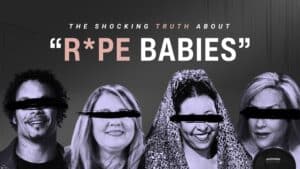In This Series:
- Understanding Emotional Abuse
- Healing the Wounds of Emotional Abuse
- FAQs About Emotional Abuse
- Healing the Emotionally Abusive Marriage
- Emotional Abuse in the Local Church
- Jennifer's Recovery From Emotional Abuse
Meet Jennifer.
Committed Christian.
Leader in her church.
Respected member of the community.
But as a survivor of emotional abuse, she’s now a patient in the local hospital’s psychiatric wing.
This is her story – one of help, hope and redemption.
An emotionally abusive childhood
Jennifer describes her childhood as emotionally abusive and unpredictable. Her mother, now a committed Christian, struggled with uncontrolled rage and mental illness when her daughter was a child. Not only did the incidents of violent and frightening outbursts of rage leave her feeling insecure, unloved and inherently bad, Jennifer’s mom blamed her for her own unstable behavior.
“It’s your fault I act like this,” she said.
Suicide first entered her mind at age six.
A sensitive child, Jennifer attempted to avoid her mother’s wrath through perfectionism. By junior high school, weary and disillusioned, she knew she could never earn her mother’s love and approval.
If not her mother, she needed someone’s approval, so she sought it out by misbehaving at school, ditching it altogether or seeking affection from the opposite sex. Lonely, insecure and feeling unlovable, she grew to accept cruel and destructive behavior from friends, thinking she didn’t deserve any better.
Then she met Rick, a quiet but popular football player, and she described it as “love at first sight.” But he had a difficult home life, too. Raised by an abusive, alcoholic father, Rick described seeing his father break a plate over his mother’s head because he didn’t like what she had cooked for dinner one night.
“I would never treat you like that,” he promised.
A difficult marriage
Jennifer and Rick married after high school. Still, she felt empty and unlovable, despite a happy marriage. That changed one year later, when Jennifer gave her life to Christ. For the first time, she felt loved.
This change was great news for Jennifer, but Rick found it hard to watch. Burdened by the trauma of his past, he grew increasingly critical, unloving and withdrawn.
“He was becoming more like his father every day,” says Jennifer.
Rick never abused her, physically, but his constant criticism and belittling remarks escalated.
“If I did something that displeased him, he wouldn’t speak to me for days – even weeks – at a time,” she said.
As the abuse worsened, so did Jennifer’s health. She grew more depressed and despondent by the day, until she could no longer function. She developed chronic respiratory infections and other physical ailments.
Jennifer finally confided with a friend. But this friend – a pastor’s wife she had known for a few years – made the situation exponentially worse.
“Why would a husband treat his wife like that?” asked her friend. “You must be doing something to provoke it.”
This encounter left her feeling rejected by the church – and, ultimately, by God.
A cry for help
Sinking deeper into depression, she didn’t know how much more she could take.
“I can’t live with this much pain,” she said.
Thank God some friends from church noticed her growing dysfunction and despair. They took her to see a Christian counselor. Although he was not a good fit for Jennifer, he did refer her to a Christian psychiatrist who understood Jennifer’s pain and how to help her. The doctor hospitalized her for her own safety and to give her time to heal – away from her emotionally abusive marriage.
“I wish I could tell you a few months of good Christian counseling solved the problem,” says Jennifer. “But it took a lot longer than that!”
Eventually, with Christian counseling, the support of family, friends, a new church and medication to address the biological issues associated with her depression, Jennifer began to heal.
Now, almost twenty years later, Jennifer describes herself as healthy.
Then she adds, “But I don’t know if you can completely heal from a lifetime of abuse. It’s taken me a long time to learn to trust people and to form healthy, biblical friendships.”
Despite the time it has taken to heal, she’s grateful for all the love and support her friends and counselors have shown.
“Their love, day in and day out, has been important in my healing process,” she says.
Like Jennifer, victims of emotional abuse need professional Christian counseling and a strong support system to recover fully, according to Joann Condie, a Licensed Professional Counselor (LPC).
A counselor will assess an individual’s unique situation and personality and recommend long-term counseling – like Jennifer – or short-term, intensive therapy.
Today, Jennifer reaches out to other women, sharing her testimony of God’s faithfulness and love. She marvels that God has redeemed her pain and uses it to bring healing to others.















